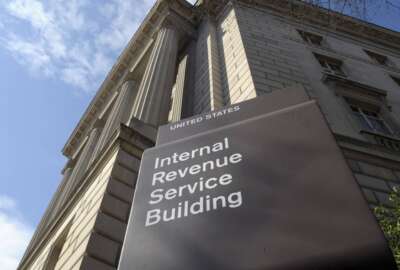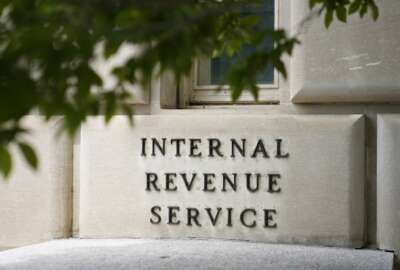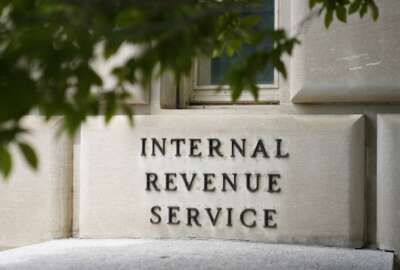IRS to launch callback option for most taxpayers seeking help next filing season
The IRS is making these upgrades to avoid the kind of backlogs in paper tax returns and correspondence it saw at the start of the COVID-19 pandemic. Those backlogs...
The IRS is ahead of schedule on its goal of becoming “paperless” for taxpayers in the coming years.
The agency announced taxpayers are now able to electronically submit all correspondence and responses to IRS notices, rather than mail a response back to the agency.
The IRS met its first milestone of becoming “paperless” by 2025 several months ahead of schedule. The agency, as of Oct. 27, has received more than 35,000 online responses to notices it sent to taxpayers.
The IRS estimates more than 94% of individual taxpayers will no longer have to send mail to the IRS.
Treasury Secretary Janet Yellen said Tuesday that this modernization effort will “make the IRS even less reliant on paper processing.”
“The impact will be significant and far-reaching. Taxpayers will save time and effort. The IRS will reduce errors and storage costs. And we’ll speed up processing times for the system as a whole,” Yellen said during a speech at the IRS headquarters.
The IRS is making these upgrades to avoid the kind of backlogs in paper tax returns and correspondence it saw at the start of the COVID-19 pandemic. Those backlogs led to unprecedented tax refund delays.
Yellen said the IRS ran into backlogs not just because of the pandemic, but also from “decades of underfunding.”
“The tax system has lagged far behind the digital age in which we now live,” she said.
Yellen announced in August that the IRS will digitally process all the tax returns it receives, as well as half of all paper-based correspondence, non-tax forms and notice responses by the 2025 filing season.
The Inflation Reduction Act, she added, will allow the IRS to modernize, “provided robust discretionary funding is also maintained, and funding is not cut.”
The agency highlighted its milestone achievement as part of a wave of customer experience improvements that taxpayers will see during next year’s filing season.
IRS Commissioner Danny Werfel said the agency during the next filing season will give nearly all taxpayers a callback option, if the expected wait time to receive assistance exceeds 15 minutes.
“This means that for virtually all citizens calling into the IRS, the era of long waits, of listening to elevator music while waiting for an IRS customer service rep to pick up, is over,” Werfel said.
The IRS will also launch a conversational voice bot on the agency’s main phone line, to help direct calls to the right agents.
Werfel said the IRS plans “to make it rare” that call wait times will exceed 15 minutes on its primary call line.
“But if it ever does, you can hang up, and we will call you back later,” he said.
Yellen said the IRS plans to answer 85% of calls during next year’s tax filing season – a target it exceeded this year.
The agency, she added, expects its average call wait time will be less than five minutes.
Yellen said the IRS’ level of customer service is “a world away” from the 2022 filing season, when the agency answered about 10-15% of incoming calls.
Werfel said the modernization projects funded by the Inflation Reduction Act are improving public opinion of the services it provides.
About 84% of taxpayers who called the IRS last year said their experience over the phone increased their trust in the IRS. That’s up from 70% of callers feeling trust in the IRS two years ago.
Werfel said the IRS is looking to exceed a 75% trust score set by the Office of Management and Budget next filing season.
“Using Inflation Reduction Act funds, we are investing significantly in making interactions with us easier through technology,” he said.
The IRS is showcasing these customer experience improvements and ongoing hiring efforts as a glimpse into what’s possible, as the agency dips into $60 billion in multi-year modernization funds under the Inflation Reduction Act.
Werfel said the IRS is “up to the challenge” of meeting its modernization goals for the next filing season.
“This transformation work has already started at the IRS, and taxpayers are already seeing what a difference a properly funded tax agency can make for them, their families, and the nation,” Werfel said.
Yellen said it was “an especially crucial time to talk about the importance of this work,” after the House last week passed a bill that would rescind about $14 billion from the IRS’ multi-year modernization fund.
Congress would repurpose those funds as aid to Israel in its war against Hamas. The White House, however, says President Joe Biden will veto the bill if it reaches his desk.
“Playing politics with IRS funding is unacceptable. Cutting it would be damaging and irresponsible,” Yellen said, adding that the IRS collects 96% of the federal government’s revenue.
Yellen said the IRS is hiring even more employees focused on taxpayer services, as well as enforcement personnel focused on high-income earners.
“For this filing season, we’ll drive even more progress by hiring employees,” she said.
Yellen said the IRS will focus part of its hiring efforts on bringing in “specialized expertise” to focus on audits for high-wealth filers, large corporations, and complex partnerships.
“These employees will join an extremely dedicated workforce: all of you. You have always gone above and beyond. But more recently, you’ve been asked to step up even more,” Yellen said.
Werfel said the IRS is also making its workforce more effective through training, technology and modernized processes, “so we are ready now, and in the future, to meet our core mission of supporting taxpayers and the nation.”
“The new funding is driving change across the IRS, and we are seeing a wave of improvements that the agency hasn’t seen in a generation,” he said.
Copyright © 2025 Federal News Network. All rights reserved. This website is not intended for users located within the European Economic Area.
Jory Heckman is a reporter at Federal News Network covering U.S. Postal Service, IRS, big data and technology issues.
Follow @jheckmanWFED






